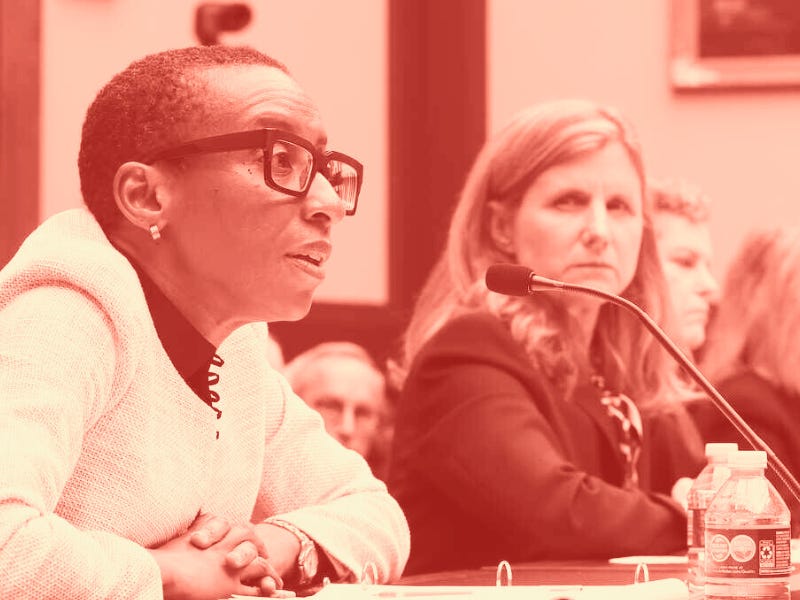One Down … Two to Go
They gave legal answers to moral questions.
Editor’s note: This is a special bonus column this week.
If hypocrisy were a crime, a whole bunch of university presidents would be behind bars. Three come immediately to mind.
By now I’m sure you know about how, during a congressional hearing last week, the presidents of Harvard, M.I.T., and Penn couldn’t simply say “yes” when asked if “Calling for the genocide of Jews” violated their codes of conduct, and whether it “constitute[s] bullying or harassment?”
Instead they sounded like they were mouthing what their lawyers and crisis management consultants told them to say — which was that “it depends on the context.”
They gave legal answers to moral questions. And three very smart people came off looking clueless, heartless, and pathetic.
Four days after her testimony last week, Penn’s president, Elizabeth Magill resigned under pressure from donors, politicians and alumni — prompting Rep. Elise Stefanik, the New York Republican who had grilled the school presidents, to issue a statement saying, “One down. Two to go.”
In fairness, as Bret Stephens points out in his New York Times column, “They all expressed abhorrence for antisemitism during more than three hours of testimony. And they are clearly struggling with how to balance respect for free expression on campus with opposition to hate speech.”
I sympathize with their dilemma. Balancing free speech while opposing hateful speech isn’t easy. Except, many college presidents, including those at so-called “elite universities” — which more than ever means “expensive universities” — don’t have such a great track record when it comes to protecting free speech.




